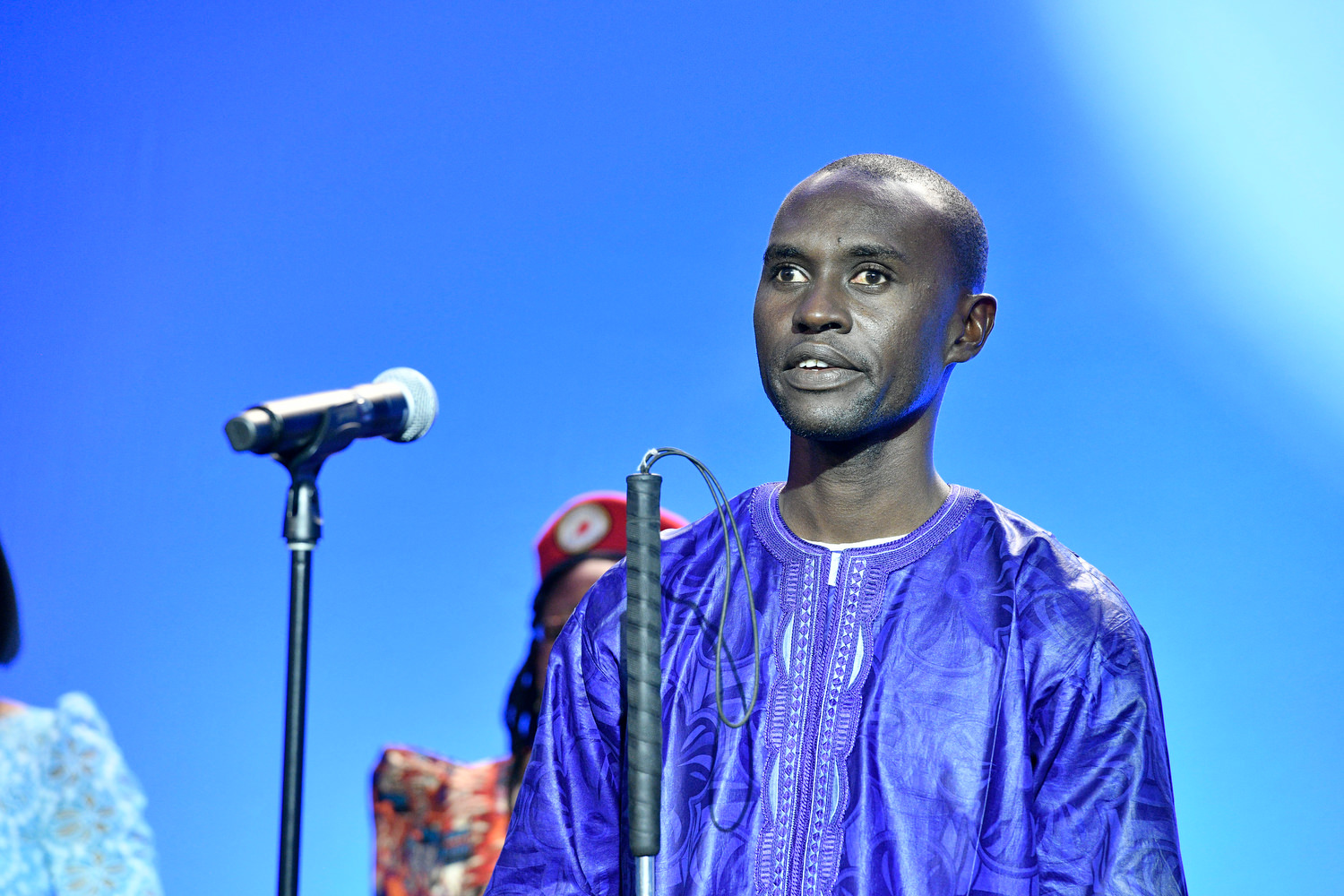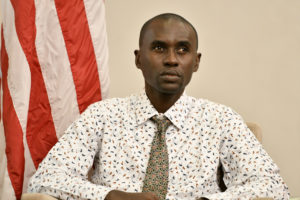Increasing opportunities for people with disabilities in The Gambia
After he lost his vision shortly after graduating high school, 2015 Mandela Washington Fellow Alieu Jaiteh of The Gambia was determined to help visually-impaired people across the country find employment opportunities.
In 2012, he founded Start Now, an organization that provides rehabilitation and training to help visually impaired people pursue an education and find employment in The Gambia. Alieu has utilized the skills and networks he developed during his Mandela Washington Fellowship to expand Start Now and increase its impact across the continent. In 2019, he was awarded the Holman Prize, a prestigious award that supports projects by blind individuals, to provide rehabilitation training to eighty blind people in rural Gambia.
My pledge is to promote self-confidence and hope for people with disabilities to continue to believe in themselves. As a Fellow, I continue to believe in the dream of Africa.
Alieu Jaiteh, 2015 Fellowship Alumnus, The Gambia
Throughout 2020, we will be highlighting the stories of Fellowship Alumni with disabilities, like Alieu, on our website and social media in honor of the 30th Anniversary of the Americans with Disabilities Act (ADA) to show how people of differing abilities are leading in their communities and countries. At the 2019 Mandela Washington Fellowship Summit, we had the opportunity to sit down with Alieu and discuss his work supporting people who are visually impaired. The content of the interview has been lightly edited for clarity.

Could you tell us about your organization Start Now?
Start Now is an organization that I founded in 2012 as a result of my personal experience of losing my vision. The challenges I faced gaining employment after losing my vision really inspired me because, unfortunately, training opportunities were very limited in The Gambia. I felt that I should really do something to help other visually impaired people in The Gambia. At Start Now, we have a vision to empower and train visually impaired people with technology and rehabilitation techniques so that they can be successful in higher education and employment.
What skills did you learn when you were on the Fellowship?
This Fellowship was a great opportunity. The leadership skills I learned, plus the networking opportunities it created, have really helped my work with Start Now back home. I started the organization at a very small scale. When I came to the United States and was able to gain more experience and build partnerships, these strategies helped me to expand the organization and achieve our vision.
 How did you apply these skills to achieve Start Now’s vision?
How did you apply these skills to achieve Start Now’s vision?
My number one vision was, “How do I make Start Now a center of technology? How do I create a complex with training facilities?” When I returned back to The Gambia, after 8 months of applying those leadership skills, I was able to get partners who supported my dream of building a center of technology for Start Now. I was able to construct this center based off similar training centers I had seen in the United States that I was able to replicate in Africa.
What would you say to a person with a disability who is thinking about participating in the Mandela Washington Fellowship?
I would say they should not limit their potential. They can make a big difference. They have their own stories to share, so let them use those stories. I know that people with disabilities have faced a lot of challenges in their life; I know the discrimination we face in terms of education, health service, and employment. The Fellowship will be a turning point to transform their lives and transform their societies.
What is your vision for the future?
I want to see visually impaired people enrolling in higher education and various jobs without discrimination in The Gambia and across Africa. I want to see persons with disabilities succeed. My pledge is to promote self-confidence and hope for people with disabilities to continue to believe in themselves. As a Fellow, I continue to believe in the dream of Africa. I want to see that all of the issues facing Africa, not just in the area of disabilities, are addressed.
As told to Abbie Wade. Edited by Abbie Wade and Meredith Lopez.
Next Story
Fellowship Alumni
LGBTQI Champions